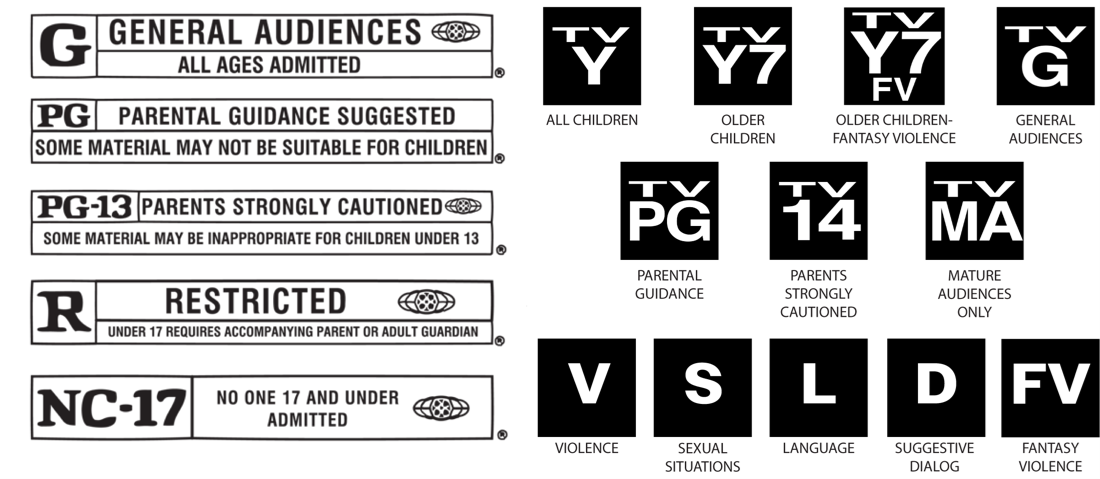10 Entertainment Tech Innovators to Watch Create Solutions on Global Scale


Julien Mitelberg, Co-Founder and Managing Partner
Fabrice Sergent, Co-Founder and Managing Partner
Bandsintown
Bandsintown is a global hub of live music that connects 60 million registered users with 540,000 artists from around the world. With live performance venues closing their doors in the wake of the pandemic, Bandisintown expanded its reach of online live-streams to connect potential concertgoers with their favorite musical acts.
The music discovery platform is intuitive and personal, allowing managers, labels, agencies and artists to access a dashboard to promote their tour dates. Artists can also directly message their followers to promote an album release or share their latest merchandise. Registered fans are able get an all-access pass to live, exclusive concerts, Q&As, live chats and artist interviews.
Last year, between March 25 and Dec. 9, 62,765 livestreams by 18,930 artists were marketed at no cost on Bandsintown to its audience of registered fans, marking an incredibly, and unexpectedly, successful 2020. During that time, Sergent pioneered the launch of Bandsintown Plus, a first-of-its-kind subscription service that gives fans access to dozens of live shows for one low monthly subscription fee.
“No other service offers plug-’n’-play solutions to fans for a single and simple subscription. Bandsintown Plus carefully curates, produces and markets 25 exclusive concerts per month for one $9.99 per month subscription,” says Sergent. “For each concert, a journalist thoroughly introduces the acts and offers fans a unique ability to ask questions after the show. Bandsintown Plus makes live music more accessible and more affordable where artists become more approachable through intimate experiences.”
Since Bandsintown’s January 2020 launch, the platform has secured performances from indie favorites Phoebe Bridgers, Chromeo, Flying Lotus, Big Thief, Wallows and Toro y Moi, with more to come.
As Bandsintown continues to grow, Sergent says there will be “more innovations offered to our registered artists to better promote their tour, sell virtual and in-person concert tickets, present new music and sell merch.”
— Daron James

Alex Cyrell, CEO and Co-Founder
Brad Thomas, Co-Founder and COO
Roger Barton, Co-Founder
Evercast
Engineering Emmy winner Evercast has emerged as the go-to real-time collaboration solution in Hollywood. The web-based platform combines video conferencing, HD live-streaming and full-spectrum stereo audio allowing pros to work together at every stage, from pre- to post-production and beyond.
With just eight employees at this time last year, Evercast was one of several collaboration tools fighting for the entertainment industry space. It gained massive popularity through word-of-mouth from industry veterans looking for the right resource to complete projects during the pandemic.
Since, the company’s revenue has surged by 1,400% and use has jumped to 200 nationally televised programs, including “The Queen’s Gambit” on Netflix , “Chernobyl” on HBO and ABC’s late night stalwart “Jimmy Kimmel Live.” The Cinema Audio Society had nominated them in the outstanding product in post-production category earlier this year.
“Evercast was built specifically for creative collaboration,” says Cyrell. “For example, a film editor can work side by side with the director, or a director can stream live from location with producers weighing in virtually. With ultra-low latency, Evercast makes it feel like they’re working together in the same room.”
The platform offers all must-have tools for collaborative workflows, including recording and reviewing key session moments, easy-to-use on-screen drawing tools, and the ability to keep track of changes and feedback with time-stamped notes. Plus, there’s 24/7 support.
Evercast is completely secure too, allowing artisans to stream live cameras on set, or from creative software including Avid, Premiere Pro or Pro Tools so teams can simultaneously collaborate. There is no need to upload any media files to Evercast, since teams can simply livestream content from a computer directly to the participants in the virtual room and make changes on the fly.
Cyrell says what’s next for Evercast are plans to “continue to expand its use cases within the TV and film production as w ell as in the adjacent markets of gaming and advertising.” The company is also looking to provide accessibility to entry level creatives, including independent content creators.
— Daron James

Jichul Lee, Partner and Executive Creative Director
Giantstep
Giantstep was established in Seoul as a traditional CG, animation and VFX studio for advertising, feature films and other creative content. Having opened its Los Angeles office four years ago, the company is primed for a big splash in the U.S. market.
Through its internal research and development team, GX Lab, which got off the ground in 2016, it’s developing a suite of tools for virtual production, real-time rendering solutions and graphic integrations with the goal of shaping the future of entertainment through extended reality (XR).
“What differentiates us from other companies in this space is how we incorporate game engines into our workflow to produce a new type of content that enables realistic graphic expressions and real-time consumer interactions,” Lee says.
For Giantstep it’s beyond making cool stuff, but recognizing that the technology is a big factor in shaping the future of content. Giantstep’s XR Live Concert Technology is one such tool, which they expedited during the shutdown to launch the world’s first ticketed virtual concert experience for SM Entertainment, which manages K-Pop artists and is one of the largest entertainment companies in South Korea. Giantstep developed a proprietary XR solution wherein the artists could perform “live” on a virtual stage with animated background elements and the ability to shoot with a multi-camera setup.
From a revenue standpoint, SM Entertainment has earned $20 million-plus from global online ticket sales during the pandemic, without the overhead of traditional live shows. XR Live Concert Technology isn’t limited to concerts. Producers of Broadway, gaming and TV events all have an opportunity to leverage it. Even Naver (the Korean equivalent of Google) has invested in Giantstep’s XR Live Concert Technology.
“We want to be a content leader of the future, so we are doing a lot of experimentation with virtual humans, virtual celebrities and digital influencers —all created with real-time engines. Clients will need content for both the ‘real world’ and the digital experience, so with the future in mind, we are very much interested in the Metaverse. In the simplest terms, that means transforming reality into the virtual world. It presents a great deal of potential as far as fan and consumer experiences go. It’s exciting,” Lee says.
— Daron James

Kirin Sinha, CEO
Illumix
When Illumix released its first mobile AR game, “Five Nights at Freddy’s AR: Special Delivery,” in August 2019, it generated over 6 million downloads and earned glowing reviews from critics and users alike. It was a big score for the Redwood City, Calif.-based startup and an even bigger validation for its young CEO Sinha, one of the only minority female tech company founders in the Silicon Valley.
The game is the combined product of Sinha’s childhood love of fantasy books (“Harry Potter,” “The Lord of the Rings”), movies (“Star Wars”) and video games (“Zelda,” “Mario Bros.”) and a passion for machine learning she developed as an undergrad at MIT in the early 2010s. Sinha launched Illumix in 2017 while completing her MBA at Stanford, where she was president of the Entrepreneurial Club, and a year later it made headlines when it secured an $8.6 million seed funding round led by Lightspeed Venture Partners and Maveron with participation from director Michael Bay’s 451 Media.
Illumix went on to raise a total of $13 million in venture capital funding, while attracting the interest of Hollywood studios, live event companies and other entertainment entities, which have commissioned it to create AR experiences for theme parks and sports and music venues.
With AR experiences, “you can have ghosts walking through the walls and talking to people or pick up your phone to take a selfie, and all of a sudden golden snitches are flying around your head,” says Sinha.
Illumix has also entered the e-commerce space with a web-based application that enables consumers to hold their hands in front of their webcam and virtually try on rings.
“There are very large markets that are opening up and growing right now for augmented reality today, and that’s where I think Illumix fits,” says Sinha. “It’s a huge way for brands and IP to reach that audience.”
—Todd Longwell

Asad J. Malik, Founder
Jadu
Malik is working on the bleeding edge of entertainment tech with Jadu, which uses volumetric capture to create mobile-based immersive experiences that enable fans to interact with holograms of artists such as Lil Nas X, Poppy, K Camp and Dor-ian Electra in shareable videos.
The son of an English-teacher father, Malik grew up in a small town in Pakistan, where he began designing websites when he was just 11 years old. At 16, his life took a dramatic turn when he received a scholarship to an international high school in the Netherlands.
“It was quite a culture shock,” observes Malik. “During that time, I started diving deeper into technology, entrepreneurship and the idea of building a company.”
Malik came to the U.S. to study at Bennington College in Vermont, where he began working on AR projects. His first major effort, “Terminal 3,” in which the viewer takes on the role of an airport security officer interrogating a passenger, was an official selection at the 2018 Tribeca Film Festival, where it was dubbed “the most intense AR experience” by Fast Co. He followed up with “A Jester’s Tale,” which the Verge named the best augmented reality at the 2019 Sundance Film Festival.
Malik launched Jadu in March 2020, just as the pandemic was shutting down live performances, giving artists an alternate way to connect with fans and monetize their work. Its most recent release is “Curse of Calypso,” a dark and creepy interactive experience from the Canadian-American band Palaye Royale, and more will be coming soon.
“By this summer, we could have much bigger artists performing longer form experiences in your room and talking to you and engaging with your surroundings in more complex ways,” he says.
— Todd Longwell

Steve Johnson, VP, Product and Studio Design
Netflix
Johnson leads the team at Netflix that designs everything subscribers see, feel and read on its user interface (UI), from the colors and the shapes to how much latency there is when something is clicked on. These subtle choices may seem inconsequential, but, according to Johnson, they have a major impact on how the service’s 200 million-plus members around the globe access and enjoy content.
“The biggest push that we are looking at right now is how we can make sure that we can personalize the UI so no matter where you are on the planet, it’s going to be the right UI for you,” says Johnson. “How does [it] present to the member so that when they’re using the product, they don’t feel like they’re being spoken at, they feel like they’re part of the conversation and they’re being spoken with?”
Recent innovations from Johnson and his team include the “Fast Laughs” clips feed for mobile devices and the “Play Something” shuffle play button, as well as interactive storytelling experiences such as “Black Mirror: Bandersnatch.” They’re also working on expanding individualized member experiences via such features as screensavers that offer curated suggestions.
Johnson spent much of his youth moving across the country with his mother, trying to stay two steps ahead of his abusive father, usually winding up as the only Black kid in school. Shows including “Star Trek,” which featured a multi-racial cast, were inspirational touchstones for him then, and they inform his mission to bring diverse content to the masses via Netflix today.
“Growing up as a young Black kid in the ’70s, it was the TV set that showed me I could be more than just what the world expected me to be and more than what the people outside kept on trying to turn me into,” says Johnson.
— Todd Longwell

Vidya Narayanan, CEO and Co-founder
Rizzle
When it comes to social media, Rizzle, a short-video platform with episodic content, is the new hotness, especially in India where TikTok was banned.
The app is changing the game by eliminating trolls from the comments section and amplifying diverse, up-and-coming voices Hollywood has yet to discover.
The 60-second video platform allows anyone to pitch a short-form series to its production arm, Rizzle Studios, which greenlights productions, paying creators for the content. Selected pitches may be eligible for funding to assist with production costs, too. The primary types of content viewable on the budding slate of original RizzleSeries include vlogs, comedy shows, talk shows, opinions, discussions and scripted short series.
Narayanan says what separates Rizzle from TikTok is that it allows “creators to host multiple channels each, where creators host four channels on average, creating different types of content in different channels. Channels enable creating connected stories and Rizzle’s binge-mode feed allows watching episodes in sequence without leaving the feed.”
Rizzle also has its 3Min Series, in which creators can produce a three-minute series using the hashtag #3MinSeries and be eligible to receive a bonus payment. These series are mini-stories that may have a beginning, middle and end told in three episodes. All the 3Min Series are reviewed monthly for any appropriate bonus distribution.
The true standout feature of Rizzle, though, is the elimination of written comments within the app, and the only way users are able to respond is by recording a video of themselves, creating a positive environment with meaningful exchanges and insightful dialog between users.
Rizzle releases updates every week and is constantly evolving features based on user feedback. Rimix is its latest, a patent-pending feature that enables users to create various mixes of their favorite videos on Rizzle with a single touch. Creators can mix between two to five Rizzle videos of their choice on a particular track, and they also have a choice to add to the Rimix by recording their own part.
— Daron James

Chuck Parker, CEO
Courtesy of Andrei Luca
Sohonet
With the pandemic changing the way we work, remote collaboration has never been more important. By combining innovative technologies with world-class services, Sohonet helps professionals working across film, TV and advertising to collaborate with teams and deliver content with solutions built for the media community.
Since the beginning of the shutdown, Sohonet has tailored solutions to work even harder for users collaborating remotely. The sole aim of their team of technical experts is to remove the obstacles that get in the way of your creative process, by enabling users to move, manage and store content securely and easily throughout the production workflow.
“Keeping all parties aligned on creative vision is paramount to the success of your project and having the right tools to execute that shared vision, regardless of location, is key,” says Parker.
Sohonet’s real-time ClearView collaborative tools have been built to bring remote teams together through a secure ecosystem, offering workflow collabs across production and post from editorial, sound mixing, color grading and visual effects reviews.
With ClearView Flex, teams have tools to stream live encrypted content in real-time from any source to collaborators that’s viewable on any tablet, phone, computer or Apple TV. It’s designed to make “over the shoulder” viewing, discussion and approval between creatives and clients easy. The low-latency streaming service doesn’t even require content to be uploaded before sharing either.
As more creatives started working from home, Parker spearheaded a move to support ClearView Flex streaming options to match slower consumer internet connections. “We immediately deployed ‘super low’ bit rates for those in extremely challenged environments. We also scaled out the infrastructure to support 15 viewers as the norm and allow up to 30 viewers in a multi-hour session to meet the changing work habits of crea-tives working from home during the lockdown.”
ClearView Flex has already been recognized with an Emmy Engineering Award and is used by every major distributor, including Netflix, HBO, Disney, NBC Universal, Amazon Studios, Warner Bros. and Sony.
— Daron James

Sam Lucas, Paul Burton, Co-founders
Courtesy of Special.TV
Special.tv
The state of Montana is generally not considered a hotbed for tech or entertainment, but Lucas and Burton could help change that perception with their Boze-man-based startup Special.tv, which provides a platform for creators to launch their own subscription video-on-demand (SVOD) channels with no fees other than a 10% cut of their subscription revenue.
“There’s no exclusivity contracts or licensing agreement,” Lucas says. “Creators own and control 100% of their content, so you’re free to premiere a film on your channel and keep it there forever as you develop your catalog, move it to another platform or keep it on both.”
Burton and Lucas, both in their mid-20s, met through Launch-Pad, an entrepreneurial accelerator for students and alumni at Montana State University in Bozeman, where they were studying software engineering and marketing, respectively.
“We recognized that everyone wanted to build a mobile app and no one knew how to, and I knew all the people who wanted to build software and he knew how to build it, so we linked up,” Lucas says.
While still students, they launched Triple Tree Software, a company that designed mobile and web apps, and backend APIs for startups. After two clients paid them to develop custom VOD platforms, and more followed asking them to do the exact same thing, they decided they’d be better off launching their own service.
The idea was a hit with investors, attracting $2.26 million in funding from Bozeman-based New Frontier Capital, 30West in Los Angeles, former NBCUniversal CEO Steve Burke and film producer and venture capitalist David Fialkow of General Catalyst, among others.
No matter what happens going forward, Lucas and Burton have no plans of moving their headquarters to Hollywood or Silicon Valley.
“We’re proud of not being bred from the traditional media space,” says Lucas. “It enables us to approach new problems with new thinking and new solutions.”
—Todd Longwell

Teresa Phillips, CEO and co-founder
Spherex
Phillips offers a cutting-edge solution for an increasingly global entertainment biz, hyper-conscious about offending viewers’ cultural sensibilities. Using a combination of AI, machine learning and old-fashioned human curation, her company analyzes movies and TV series to ensure they are relevant and appropriate for 240 different territories around the globe, assessing everything from legal compliance and appropriate audience range to religious references and cultural taboos.
“We’ve really created a cultural playbook for how content providers and platforms should operate in a regulated international environment, and that has never existed before,” says Phillips, who launched Spherex three years ago.
Phillips took a circuitous route to Silicon Valley moguldom. She grew up on a farm in Kansas, then did a seven-year hitch in the army, serving as an executive assistant to four-star generals and diplomats at the Pentagon and at NATO headquarters in Belgium. Following stints at companies including CyberCash, Time Warner Cable and Yahoo, she made her first foray into tech entrepreneurship in 2006 with Graspr, a social network for user-generated instructional videos that attracted $2.5 million in Series A funding. Unfortunately, her thunder was stolen by another video sharing startup, YouTube, which was acquired by Google for $1.65 billion in stock the same year.
“I actually was talking to [YouTube] about joining them and I said ‘No, I’m gonna do my own thing,’” she says. “That’s one of those things where you say, ‘What was I thinking?’ [Graspr] got off the ground, but I didn’t have the runway to scale it.”
Today, Spherex counts Google/YouTube as one its clients, along with Paramount, Lionsgate, Comcast/NBCUnversal, HBO, AMC, Starz, PBS and Samsung, and the business continues to grow.
“I just got an email this morning from one of our clients and they said, ‘We’ve got 100,000 titles that need ratings for these 25 markets,” she says.
—Todd Longwell
Related Posts


SILICON VALLEY
2336-H Walsh Ave.
Santa Clara, CA 95051
+1(408) 550-2344
LOS ANGELES
3900 W Alameda Ave.
Burbank, CA 91505
+1(310) 496-7307









